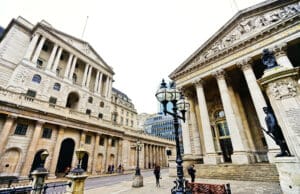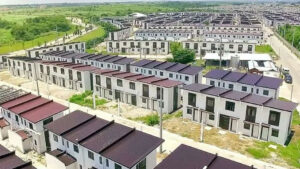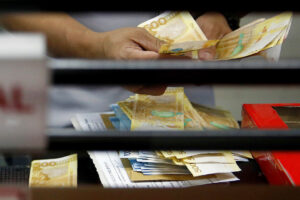THE P50 daily minimum wage hike for Metro Manila workers that will take effect on July 18 is unlikely to fuel inflation, according to economists.
Its limited coverage means it probably won’t be inflationary compared with earlier proposals for a nationwide wage hike, said Ruben Carlo O. Asuncion, chief economist at Union Bank of the Philippines, Inc.
“It’s going to take effect this month, so that has to be factored in,” he told Money Talks with Cathy Yang on One News on July 2. “But versus P100 to P200, I think P50 is a huge difference from the huge uptick that was originally proposed by Congress.”
The P50 wage hike is a “well-calibrated move,” said Jonathan L. Ravelas, senior adviser at Reyes Tacandong & Co.
“It boosts worker income without significantly stoking inflation,” he said. “Given current low inflation and soft growth, the impact should be manageable — especially if businesses adjust gradually and productivity improves.”
“It’s a positive step, but we’ll need to watch for second-round effects in labor-intensive sectors,” he added.
The Labor department last week said the P50 daily wage increase — the biggest pay hike ever granted by the National Wages and Productivity Commission — would benefit about 1.2 million workers in the Philippine capital and nearby cities and provinces.
The new daily minimum wage in the National Capital Region (NCR) is expected to increase to P695 in the nonagricultural sector.
The pay of workers in the farm sector, service and retail outlets with 15 or fewer staff members and factories with fewer than 10 workers will go up to P658.
Congress adjourned last month without approving the bill seeking to hike the daily minimum wage by P100-P200. Economic managers had warned that the legislated wage hike could have “dangerous repercussions” for the Philippine economy.
Philippine inflation picked up to 1.4% in June from 1.3% in May amid higher utility costs, the government reported on Friday.
This was slower than 3.7% in June last year and was within the central bank’s 1.1% to 1.9% forecast for the month. This was also below the 1.5% median estimate in a BusinessWorld poll of 17 analysts.
National Statistician Claire Dennis S. Mapa on Friday said the latest wage hike’s impact on inflation could be lagged, adding that this would likely be reflected in personal care, miscellaneous goods, and services.
Michael L. Ricafort, chief economist at Rizal Commercial Banking Corp., said a P50 wage hike that is given to other regions could add a percentage point to inflation.
“Businesses tend to pass the higher minimum wages, or pass-through effects, as much as possible, depending on competition locally and from imports,” he said in a Viber message.
Ateneo Center for Economic Research and Development Director Ser Percival K. Peña-Reyes said the NCR wage hike could “lead to job losses or inflation if the hike is merely artificially imposed and is not commensurate with any actual productivity increase.”
IBON Foundation Executive Director Jose Enrique “Sonny” A. Africa said the hike is “minuscule” and should not have any impact on consumer prices.
“The P50 NCR wage hike is just 0.4% of NCR establishment expenses and barely 2.5% of profits,” he said in a Viber message.
He added that “any firm that raises prices because of the tiny hike is just using that as an excuse for further profiteering.” — Aubrey Rose A. Inosante

















